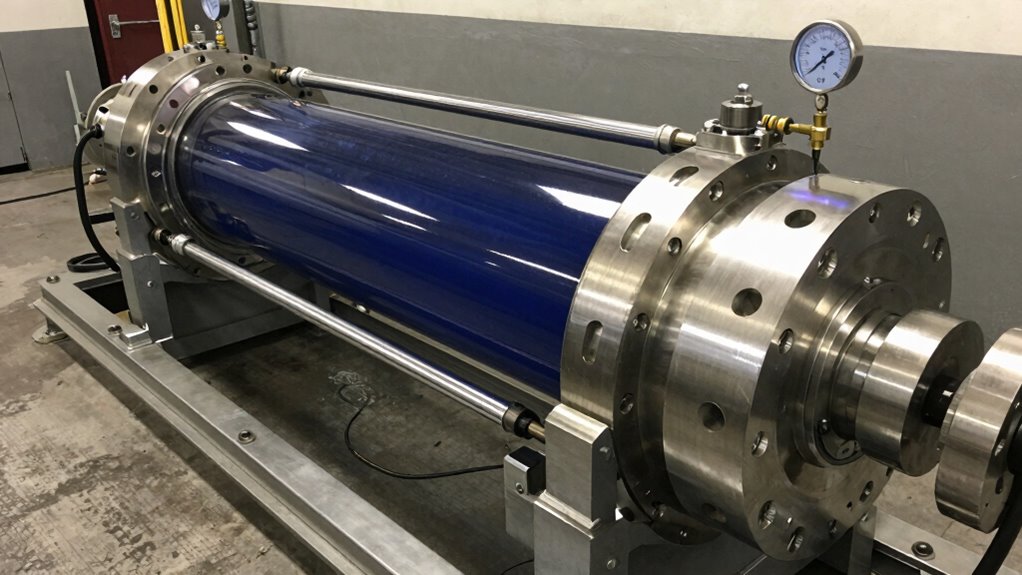
Hydraulic Dynos: Applications in Heavy Industry Jobs
Hydraulic dynos prevent catastrophic field failures—but most heavy industry operators still skip this critical step. Learn why.
Dynamometers play a crucial role in vehicle performance optimisation, providing a precise and controlled environment for testing and development.
Measuring parameters such as horsepower, torque, and air-fuel mixture, dynamometers assist tuners in identifying areas for improvement and making targeted adjustments to achieve the desired performance goal.
Thorough pre-dyno inspection and preparation are essential to guarantee accurate results and prevent damage to the vehicle's engine or other components.
Leveraging dynamometer testing, vehicle owners can unlock their engine's full potential, gaining increased power, efficiency, and a competitive edge.
The dyno-tuning process, a meticulous calibration of a vehicle's performance, commences with a thorough pre-dyno inspection to identify and rectify any underlying issues that could compromise the safety and success of the tuning session.
Once the vehicle is deemed ready, it is securely fastened to the dyno rollers and put into gear, allowing the tuner to connect their computer to the vehicle's computer for live data. This connection enables the tuner to optimise the dyno for the vehicle's specific needs.
As the dyno-tuning process progresses, the vehicle is accelerated to the top of the RPM range and then slowed down using the dyno brake, repeating the process while the tuner makes adjustments to the tune.
After each dyno run, a power graph is generated, displaying the vehicle's horsepower and torque output. This graph reflects the changes made by the tuner during the dyno-tuning process, providing a clear visual representation of the vehicle's performance.
The ultimate goal of dyno-tuning is to achieve the desired performance goal, whether that be increasing horsepower and torque, improving drivability, or minimising backfire.
Precise calibration of a vehicle's performance on a dynamometer relies on a meticulous pre-dyno inspection, an essential step that sets the tone for a successful tuning session.
This crucial step identifies and addresses any potential issues with the vehicle, ensuring a safe and reliable dyno-tuning process.
The vehicle's fluids, belts, hoses, and tyres are thoroughly checked to verify they are in good condition and can withstand the dyno-tuning process.
Any issues found, such as leaks or frayed wires, are addressed before the dyno-tuning process begins, preventing damage to the vehicle's engine or other components.
Thorough pre-dyno inspection is imperative in preventing costly repairs and guaranteeing accurate results.
A meticulous pre-dyno inspection gives tuners confidence that the dyno-tuning session will yield reliable and accurate data, allowing for optimal vehicle performance optimisation.
With the vehicle properly prepared and inspected, attention turns to measuring engine performance metrics, a critical aspect of dyno tuning.
A dynamometer measures engine performance metrics such as horsepower, torque, and air-fuel mixture, providing an exhaustive grasp of an engine's capabilities. Horsepower and torque measurement typically involves a load cell or strain gauge, translating the force generated by the engine into a numerical value.
Engine performance metrics are usually measured at the crankshaft, wheels, or axles, depending on the type of dynamometer used.
Optimising engine performance relies heavily on measuring air-fuel mixture, as it directly affects engine power, efficiency, and emissions. For most gasoline engines, a stoichiometric air-fuel ratio of 14.7:1 is ideal.
Dyno tuning software generates power graphs and charts, providing a visual representation of an engine's performance metrics, allowing tuners to identify areas for improvement and make targeted adjustments. Accurate measurement of engine performance metrics enables tuners to fine-tune the engine to achieve optimal performance, making dyno tuning a vital step in vehicle performance optimisation.
Regular dyno tuning offers several key advantages when incorporated into a vehicle's maintenance routine.
Optimising engine performance can increase a vehicle's horsepower and torque by up to 10-15%, resulting in improved acceleration and overall performance. This intensifies the driving experience, making it more enjoyable and responsive.
Dyno tuning can also improve a vehicle's fuel efficiency by up to 5-7%, leading to cost savings and reduced environmental impact.
Regular dyno tuning helps identify and prevent potential engine problems, reducing the risk of costly repairs and downtime. It can also prolong the lifespan of a vehicle's engine and other components, reducing maintenance costs over time.
In totality, regular dyno tuning can realise a vehicle's full potential, providing a significant surge in power and performance while minimising its environmental footprint.
Among the diverse tools used to measure vehicle performance, dynamometers stand out as vital devices for optimising engine power and efficiency.
There are two main categories of car dynos: engine dynos and chassis dynos. Engine dynos measure engine numbers directly, while chassis dynos test the power generated by the wheels, simulating road conditions with fixed roller assemblies.
Chassis dynos are further divided into two-wheel drive and all-wheel drive options, with the latter providing more in-depth readings and logged data.
The cost of a dyno tune varies depending on the type of vehicle and the extent of modifications.
Reputable brands such as Dynojet offer high-quality dynamometers, trusted by partners such as Livernois Motorsports, Bama Custom Tuning/American Muscle, and GTR High Performance for diagnosis and measurement.
When selecting a dynamometer, it is imperative to consider the type of vehicle and the level of precision required. Vehicle owners and tuners can make informed decisions to optimise engine performance and achieve desired results, taking into account the different types of dynos and their costs.
Dyno tuning is a vital step in vehicle customization, as it allows for the optimization of engine performance to achieve specific horsepower goals.
Through dyno tuning, vehicle owners can tap into their engine's full potential, gaining increased power and efficiency.
For vehicle enthusiasts seeking to tap their engine's full potential, dyno tuning offers a precise and controlled approach to optimising engine performance.
Identifying and addressing performance bottlenecks, dyno tuning can increase a car's horsepower and torque, resulting in significant gains of up to 20-30% or more. This process typically takes around six hours to complete and requires an experienced auto technician or facility to guarantee accurate results and prevent engine damage.
Dyno tuning's benefits include:
Customised horsepower solutions, made possible through precision dyno tuning, empower vehicle enthusiasts to craft a unique driving experience tailored to their specific needs and preferences.
A dynamometer enables individuals to tune a vehicle to optimise its horsepower, ultimately enhancing its comprehensive performance. This process measures engine torque, power output, and acceleration, allowing for fine-tuned adjustments to be made.
Customised horsepower solutions cater to the diverse needs of vehicle owners, from casual drivers seeking improved fuel efficiency to racing enthusiasts demanding maximum power output.
Dyno tuning enables individuals to create a bespoke driving experience that aligns with their lifestyle and preferences. It also enables vehicle enthusiasts to push the limits of their vehicles, venturing into new possibilities and releasing hidden potential.
With customised horsepower solutions, the possibilities are endless, and the driving experience is transformed.
To amplify horsepower and torque, it is vital to focus on dyno tuning fundamentals, which involve precise measurement and analysis of engine performance.
Torque optimization techniques, such as identifying areas for refinement in power graphs, can also substantially boost engine power output.
Performance enthusiasts seeking to unlock their vehicle's full potential often turn to dyno tuning, a precise and controlled process that helps identify areas for improvement and optimise engine performance.
Dyno tuning is a valuable tool that measures the power of an engine, allowing tuners to make targeted adjustments for optimal performance. A dynamometer is used to measure parameters such as horsepower, torque, and air-fuel mixture in a controlled environment.
The dyno-tuning process involves strapping the car down on the dyno rollers and connecting the tuner's computer to the car's computer.
The dyno is then optimised for the car's specific needs. After each dyno run, a power graph is generated, showing the amount of torque and horsepower produced by the car.
Adjustments are made based on the data to optimise performance.
Dyno tuning enables tuners to make targeted adjustments, providing a safe and controlled environment for testing and development.
This process is vital for releasing a vehicle's full potential, whether it's a basic dyno tune or thorough tuning.
Torque, a critical factor in amplifying horsepower, influences nearly every aspect of engine performance.
Dyno-tuning enables tuners to precisely measure torque and horsepower, identifying areas for refinement to achieve peak power output. Analysis of torque curves allows for adjustments to ignition timing, fuel injection, and other parameters to boost torque production, resulting in desired horsepower gains.
A 10% increase in torque can lead to a 5-7% increase in horsepower, making torque optimization a vital component of performance refinement strategies.
Dyno-tuning helps identify torque-robbing components, such as restrictive exhaust systems or inefficient intake manifolds, guiding the installation of high-performance upgrades to boost torque output.
Advanced techniques, including dyno-based traction control and launch control, can further refine torque delivery and amplify acceleration in high-performance vehicles.
These techniques enable tuners to tap the full potential of an engine, delivering exceptional power and performance.
Harnessing an engine's full potential requires a delicate balancing act, where even the slightest adjustment can yield substantial gains in horsepower and torque.
Dyno-tuning can dramatically increase engine horsepower, resulting in stronger and faster acceleration.
Optimal engine power amplification depends on addressing the following key areas:
Using Dynamometers for Vehicle Performance Optimisation
Understanding the Dyno Tuning Process
At Hyper Power, we utilise dynamometer tuning, commonly referred to as dyno tuning, to measure and adjust a vehicle's engine performance to optimise its power output. This process involves connecting the vehicle to a dynamometer, which simulates diverse load conditions to test the engine's performance. If you have any questions about our Custom Dyno Solutions, please do not hesitate to contact us.
Pre-Dyno Inspection and Preparation
Prior to dyno tuning, a thorough examination of the vehicle is crucial to verify that all systems are functioning correctly. This includes checking the engine oil, coolant, and brake fluid levels, as well as inspecting the air filter, spark plugs, and belts. Our team at Hyper Power can assist with Installation and Setup to ensure a seamless process.
Measuring Engine Performance Metrics
During dyno tuning, multiple engine performance metrics are measured, including horsepower, torque, and rotational speed. These metrics provide valuable insights into the engine's performance, allowing for targeted adjustments to be made. Our experts can help you understand these metrics and provide Training and Certification to get the most out of your dynamometer.
Benefits of Regular Dyno Tuning
Regular dyno tuning offers several benefits, including improved fuel efficiency, increased power output, and extended engine lifespan. Furthermore, dyno tuning can help identify potential engine problems before they become major issues. Our Technical Support and Maintenance team can help you schedule regular tuning sessions.
Types of Dynamometers and Cost
There are several types of dynamometers available, including eddy current, hydraulic, and AC dynamometers. The cost of dyno tuning can vary depending on the type of dynamometer used and the complexity of the tuning process. We offer Software Updates and Upgrades to ensure you have access to the latest technology.
Dyno Tuning for Vehicle Customisation
Dyno tuning is particularly useful for vehicles that have been modified with performance-enhancing components, such as turbochargers or superchargers. By optimising the engine's performance, dyno tuning can help capitalise on the benefits of these modifications. Our Diagnostics and Performance Analysis services can help you identify areas for improvement.
Capitalising on Horsepower and Torque
Dyno tuning can help capitalise on a vehicle's horsepower and torque output by identifying and addressing any performance bottlenecks. This can be achieved through adjustments to the engine's fuel injection, ignition timing, and other parameters. Our Rental Services allow you to test our dynamometers before committing to a purchase.
Conclusion
Dynamometer tuning is a valuable tool for optimising vehicle performance, offering benefits including improved fuel efficiency, increased power output, and extended engine lifespan. At Hyper Power, we offer a range of services, including Dynamometer Testing Services and Accessories and Parts, to help you get the most out of your dynamometer. If you have any questions about how we can help, please do not hesitate to contact us.

Hydraulic dynos prevent catastrophic field failures—but most heavy industry operators still skip this critical step. Learn why.
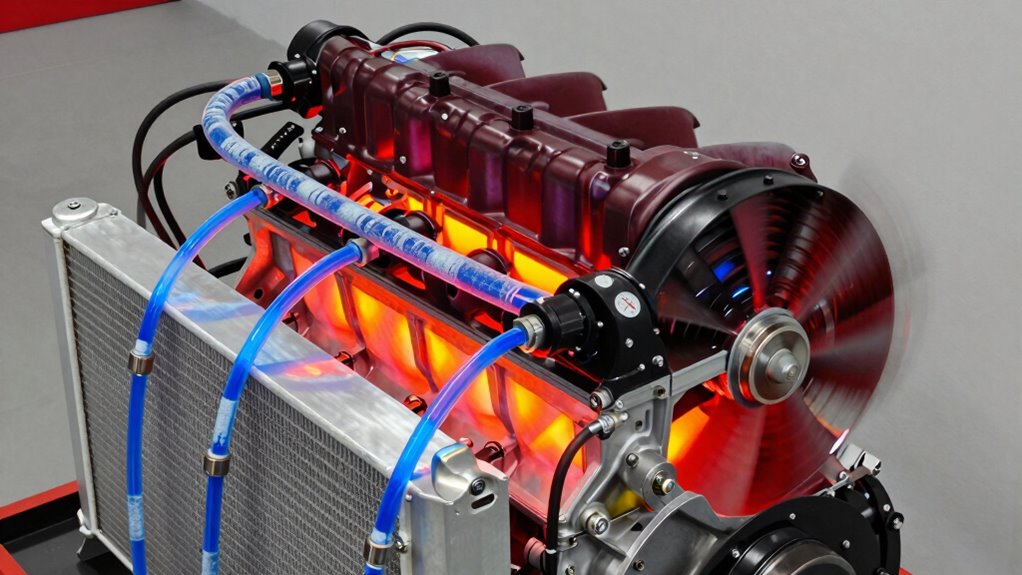
Most diesel dyno operators ignore this—and it costs them thousands in failed runs and wasted data.
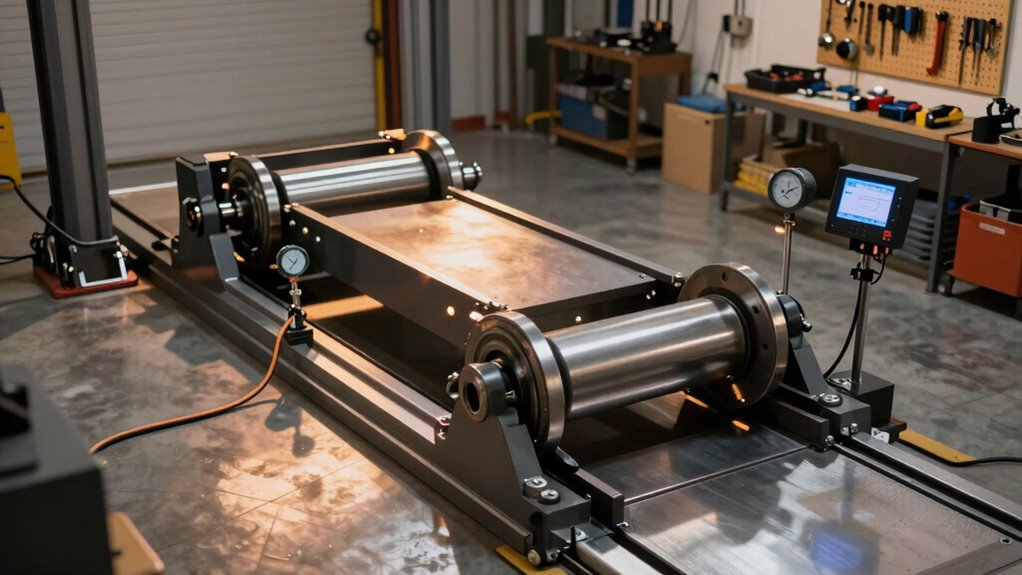
Stop wasting money on road testing. One dyno investment eliminates comebacks, builds loyalty, and outpaces competitors. Here’s why your workshop needs it.
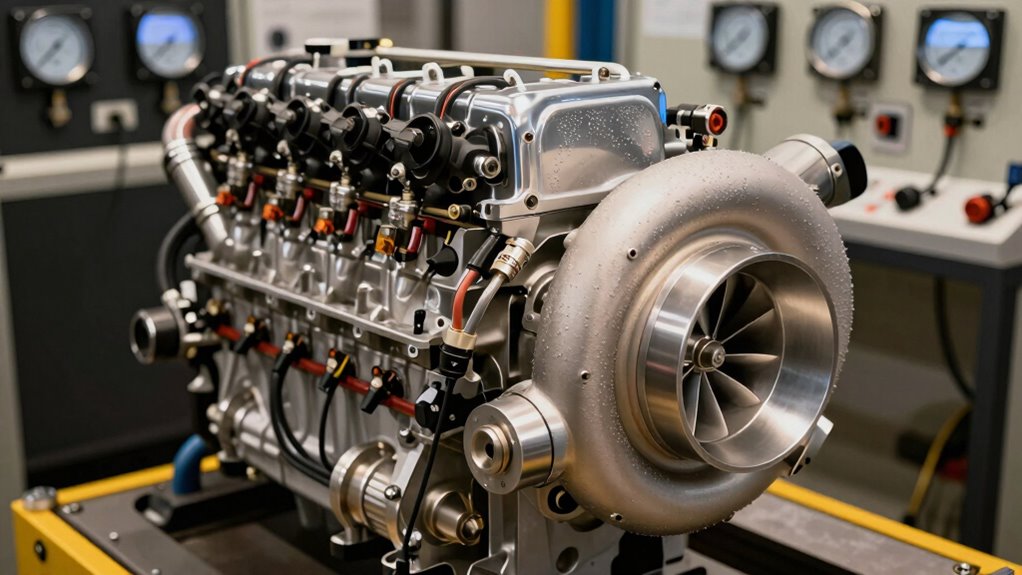
Diesel turbo lag isn’t inevitable—modern dyno diagnostics reveal the hidden culprits stealing your power. Find out what your engine is hiding.
Fleet operators are throwing money away. Dynos reveal what road tests miss—and how much you’re losing.
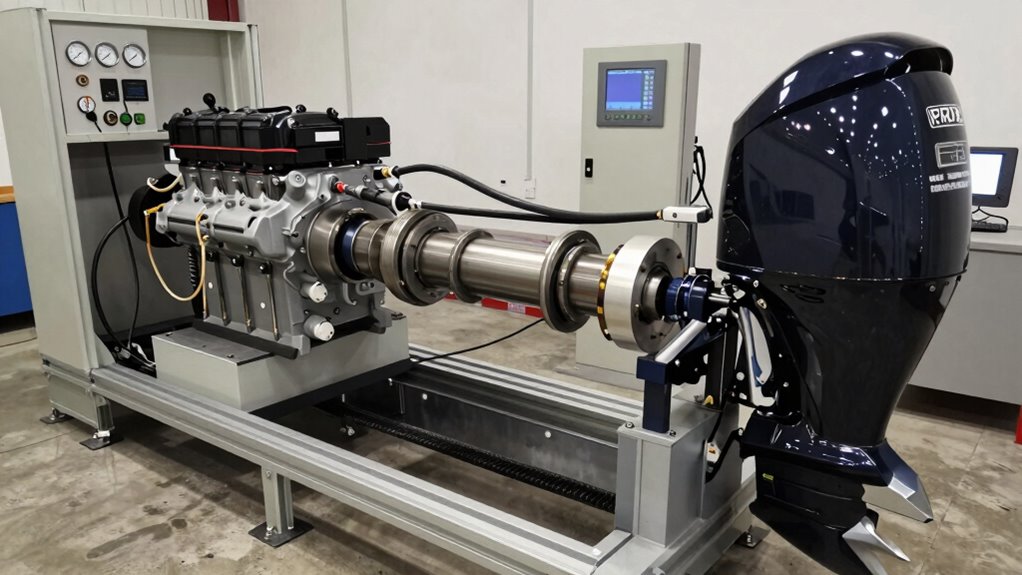
Water testing won’t reveal what dyno testing exposes. Learn why engine builders skip this step at their peril.
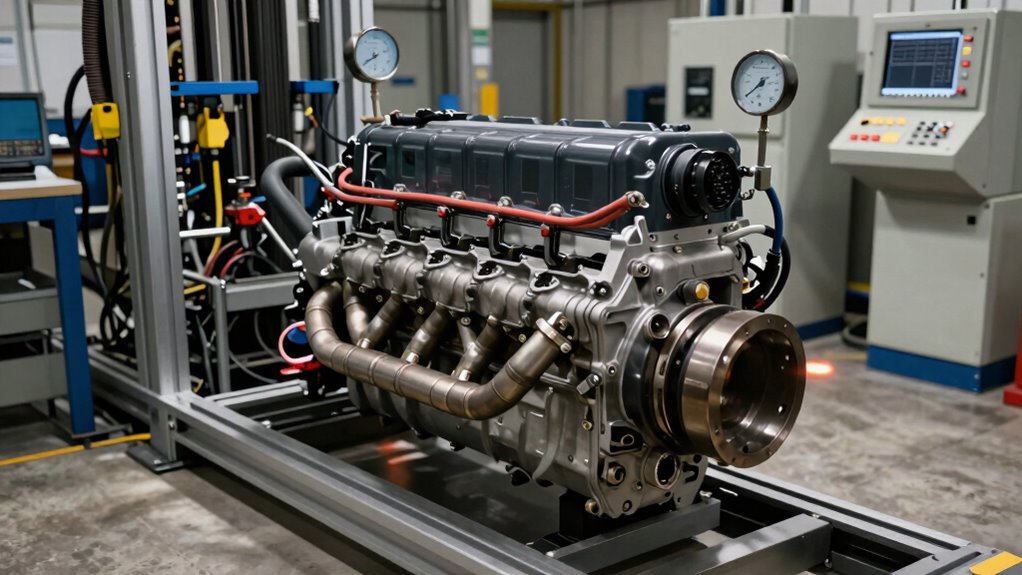
Tractor performance tests reveal what manufacturers won’t tell you. See how dynamometer data exposes hidden inefficiencies in your equipment.
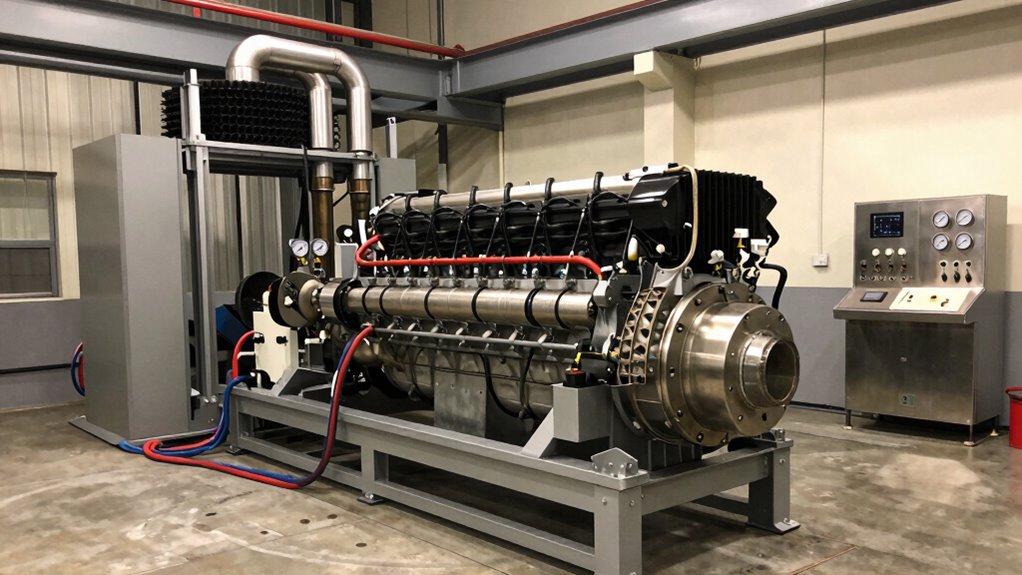
Diesel engine testing mistakes cost thousands monthly. Learn what separates thriving operations from regulatory nightmares.
No posts found!